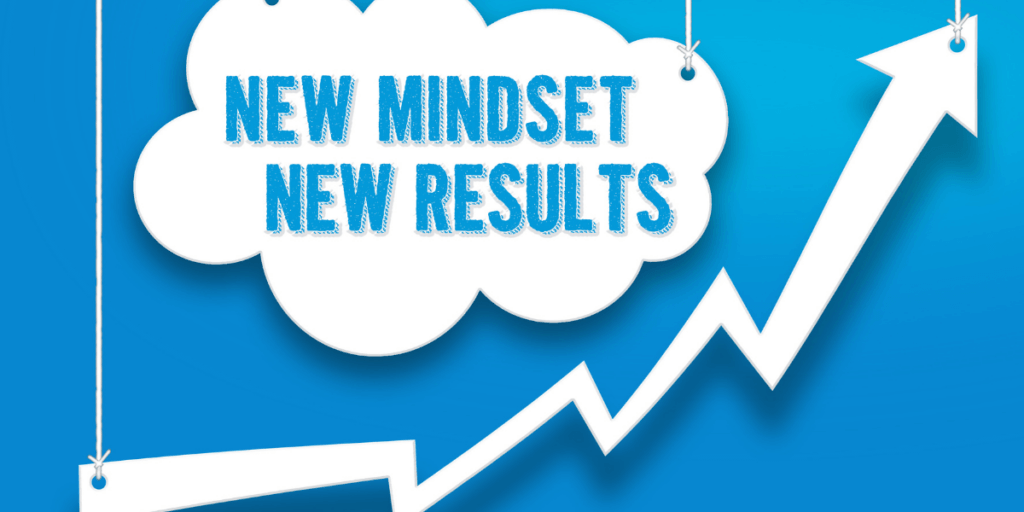Is your nutrition coach a good fit to run the nutrition coaching program in your gym?
As a gym owner it’s so important to have great staff, however it’s really hard sometimes to measure what great is. dIf you are anything like I used to be, when I would hire staff, I thought they magically knew my expectations, and understood their roles and tasks.

This was further from the truth, and surprise would set in when my coaches didn’t perform exactly like I thought they should. But, was it their fault?
Probably not.
A Key Consideration When Asking Yourself "Is My Nutrition Coach A Good Fit?"
The most important thing to consider when asking yourself, “Is my nutrition coach a good fit?” is whether or not you have communicated your expectations, and roles and tasks for the position. Effective communication is the core to any relationship whether personal, or business.

Employees can’t read minds. If you think your nutrition coach isn’t living up to your expectations, make sure you have made your expectations clear before you decide to move on to another person. Many times little misunderstandings, or things not being done “the right way” are just bi products of mis communications. Clearing these misunderstandings up may be easier than you think by having a simple conversation. Providing clarity, education, and support around expectations, and the role will provide the nutrition coach with areas to focus.
Continuing to keep the lines of communication open after this initial conversation is equally important. At HSN Mentoring we recommend that the nutrition coach, and gym owner meet monthly to discuss KPI’s, program growth, and expectations from both parties.
An owners role for the program is to provide support to the nutrition coach. This is a valid expectation for the nutrition coach to have. That is why I say during these meetings, expectations from both parties should be part of the discussion.
We provide an On Track vs. Off Track check list in our Owner/Nutrition coach monthly meeting handbook that is available to all of our mentoring clients. It is very beneficial to reference this guide, or something similar if you are not an HSN Mentoring client, when looking at expectations for the program.

A nutrition program is a mini business inside your big business. There are a lot of moving parts. A nutrition coaches role goes beyond helping clients understand how to lose weight, improve their health and wellness. This guide clearly lays out the administrative tasks that need to be done by nutrition coaches in order to help your nutrition coaching practice be as successful as possible.
A few of those items are…
Ensuring nutrition story highlights appear on Instagram and Facebook 1x per week
The nutrition board is being updated at least 1x month
Client success stories are being created and posted to social media at least 1x every month, preferably 1x every 2 weeks
The nutrition coach should be posting a video about nutrition and wellness weekly
These are just a few items that are part of the roles and tasks associated with being a nutrition coach. The point is, make sure these roles are clearly expressed to your nutrition coach so they have an opportunity to perform, before making a judgement as to whether or not before asking yourself, “Is my nutrition coach a good fit?”
Knowing When It's Time To Consider Other Nutrition Coaches
Even with the best laid plans, sometimes things just don’t work out. You may have clearly communicated the role to your nutrition coach, and also provide them with ongoing support as needed. It’s hard to accept, but there are times when a person just isn’t the right one.
Here are some signs to look for that could indicate your nutrition coach may not be a good fit for your gym.

Sign #1 - Through multiple interactions you recognize that your nutrition coach doesn't have a growth mindset, or align with your nutrition philosophy
Here is an example of your nutrition coach not having a growth mindset:
The coach hasn’t met their personal goal of having 12 nutrition clients on their roster. During the monthly meeting you have with them you offer up the suggestion to begin including a weekly “Nutrition Tip Tuesday” video in the gym’s private Facebook group that includes the call to action of telling clients to book a free intro with the coach.
The coach responds by saying, “Well nobody approaches me in class about nutrition so why would posting a dumb video work?”
This statement clearly indicates the nutrition coach’s mindset is not where it needs to be.
Here is an example of your nutrition coach not sharing the same nutrition philosophy as you:
During an initial consultation with a new client, you hear your nutrition coach talking about setting up macros. In your mind macros are ok to approach in certain situations, but never with a new client. When you hired this coach you were clear with your expectations around your program being habit based, and the coach indicated their thoughts, and feelings are the same around the subject.
Upon further investigation, you become aware that many of this coaches clients are prescribed macros and most in person checkins are based around “hitting those numbers”.
When you bring this up with the coach, they are very defensive, rather than having an open conversation with you regarding why they prescribed macros for the new client.

Sign #2 - You begin to realize your nutrition coach doesn't have soft skills, or put themselves out there to communicate with members, and potential clients
Soft skills, also known as interpersonal or people skills, are non-technical, personal attributes, and abilities that enable individuals to interact effectively, and harmoniously with others. Just because your coach is a “certified nutrition coach”, or registered dietitian doesn’t mean they have soft skills. The best nutrition coach certification in the world can’t teach someone these skills.
Unlike hard skills, which are specific, and measurable abilities related to a particular profession or task, soft skills are transferable, and applicable across various settings and roles.
These soft skills are necessary in order for nutrition coaches to put themselves out there to communicate with your members, and potential clients. Additionally they are needed in order to be effective during client conversations.
Some soft skills to look for are:
Communication:
The ability to express ideas clearly and listen actively, both verbally and in writing, is essential for effective communication with others.
Emotional Intelligence:
This skill involves understanding and managing one’s emotions, and empathizing with the emotions of others. It includes skills like empathy, self-awareness, and emotional regulation.
Collaboration:
Being able to work well with others, contribute to team efforts, and resolve conflicts constructively are vital components of collaboration.
Adaptability:
The capacity to adjust to changing circumstances, learn new skills, and be flexible in response to challenges is highly valued in dynamic environments.
Time Management:
Organizing, and prioritizing tasks to maximize productivity, and meet deadlines is a critical skill in both personal and professional life.
Problem-Solving:
The ability to identify, and resolve problems effectively is essential for making sound decisions, and overcoming obstacles such as lack of weight loss, or behavior change struggles.
Leadership:
While often associated with managerial roles, leadership skills are valuable for guiding and inspiring others, regardless of formal authority.
Conflict Resolution:
The skill to address conflicts, and disagreements constructively, and find mutually beneficial resolutions is essential for maintaining healthy coaching relationships.
Critical Thinking:
The capacity to analyze information, think critically, and make reasoned judgments is valuable in various client scenarios.
Networking:
Building, and maintaining professional relationships with others to foster opportunities for growth and collaboration. This is very important in the nutrition coach role, as local business partners can sky rocket your reach and revenue potential.

Sign #3 - Your Nutrition Coach Does Not Practice What They Preach
By day your nutrition coach is the epitome of health! They are a certified nutrition coach, and their expertise lies in health and fitness. Days are spent educating clients how to main optimal health through meal planning (meaning prepping and grocery shopping), and educating on how to gain sustainable change. Their Instagram page shows pictures of them eating healthy food, getting ample exercise, and treating their body like a temple.
By night you find your nutrition is a junk food junky, and they have very poor eating habits! Onpoint nutrition is the furthest point from where they are at now. They are far from being in the best shape of their life, and could care less about getting better sleep, training, or eating healthy food. Members see them out at the bars three to four times per week chugging golden soda’s, and showcasing terrible eating habits. They are constantly taking supplements rather than eating whole foods in order to make up for their bad habits. Pizza, donuts, and a quick fix fad diet are on the menu for this coach.
This scenario is a bit of an exaggeration, however you get the point. Your nutrition coach needs to walk the walk if your clients are to feel comfortable trusting them with their most deepest struggles.
Sign #4 - Clients Are Complaining About Lack Of Follow Through
We’ve all been part of the scenario in which we hear a client mentioning, “Well I haven’t heard from Coach Sally yet regarding my question,” or “We had to reschedule our check in because Coach Sally had a “conflict”. After we hear these statements a few times, it becomes apparent there could be a follow through issue.
Surveying your gym’s nutrition clients is a great way to get ahead of scenarios like this. Periodically throughout a clients journey with you, they should be receiving surveys from you regarding their experience with the nutrition program. These surveys are easy to formulate in Google Forms and can help immensely with getting feedback regarding your program, and coach.
Sign #5 - The Nutrition Coach Is Falling Behind On Administrative Tasks
In many situations this is not noticeable immediately, but over time obvious signs pop up. When surveying your clients, and checking the communication between them and the coach, you notice gaps in communication and lack of client notes. Other things that may be missing are updates to the nutrition board, and lack of social media posts.
Consistency over time equals results with your fitness, and nutrition business. Being consistent on social, and consistent with all tasks associated with running the nutrition program will yield greater results than doing things half you know what.

Wrap Up
Remember, that if you find yourself asking the question “Is my nutrition coach a good fit?” then something is causing you to be unhappy. It’s probably time to do a couple evaluations.
First, evaluate what expectations are not being met. Then evaluate yourself, and reflect on how well you have communicated your expectations. If you have not, your next steps are to call a meeting. If you have, then it’s also time to call a meeting. But this time it won’t be communicate your expectations, it will be to part ways so you can begin looking for another nutrition coaching candidate.
As unfortunate as losing an employee is, it’s also an opportunity to grow. Just because someone got you where you are today does not mean they are going to get you where you need to go.
Check out this blog post if you are in a position where you need to hire a nutrition coach. We can help!




